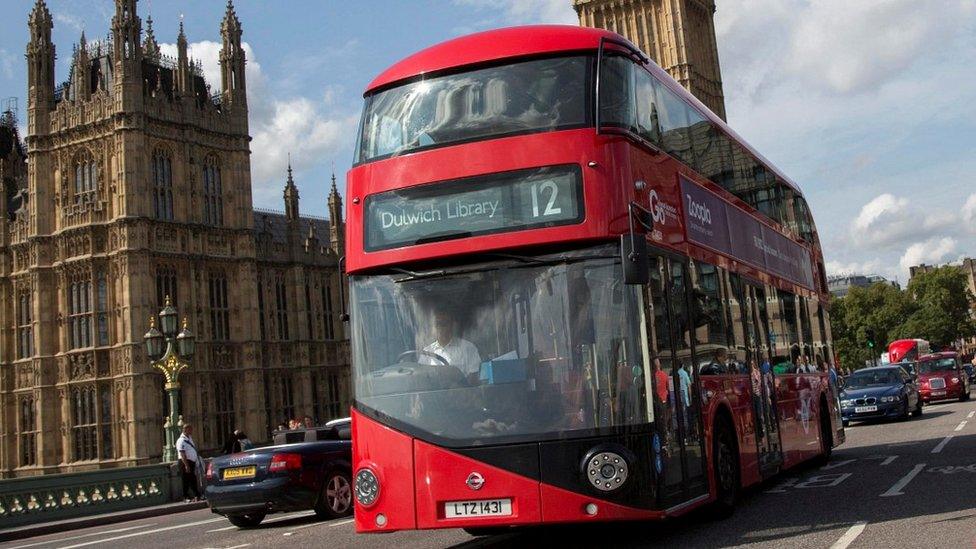Tube strike: London travel misery as lines and stations shut
- Published
- comments
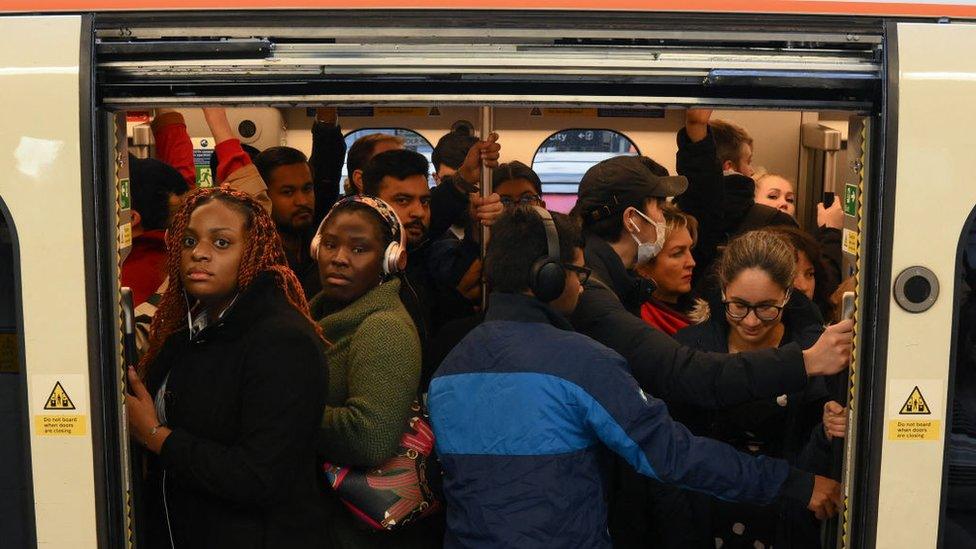
Commuters crammed on to trains at Stratford station
Commuters have endured severe disruption after a strike by London Underground workers shut most Tube lines.
Staff from the Rail, Maritime and Transport union walked out in their sixth 24-hour strike this year in a row over pension changes and job cuts.
Large queues for buses formed in places, while Elizabeth line and other train services were very busy.
Transport for London (TfL) said there were no plans to alter pensions.
Many commuters complained about having difficulties with their journeys to work.
Receptionist Bash Abdul in Hammersmith, west London, told BBC London it would take him two-and-a-half hours to get to work in East Ham in east London.
He said: "It's not convenient for anyone, it's so stressful. A 12-hour shift plus double two-and-a-half hour journey is almost 17 hours.
"It's not easy for us, it so tiring."
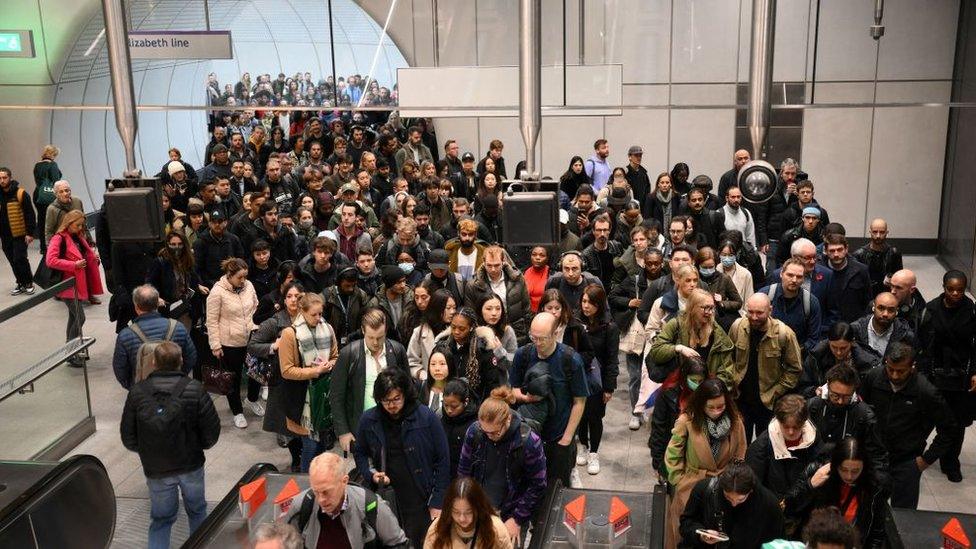
Tottenham Court Road station was busy with people arriving on the Elizabeth line
Gillian DaSilva Rodrigues, from Chiswick, west London, said she would have to take a bus and walk to get to work in Barons Court.
"To a certain extent I'm sympathetic, but everybody is feeling the pinch at the moment and it's hugely inconvenient for everybody in London," she said.
"It's been going on for some while and I hope they reach a resolution very soon."
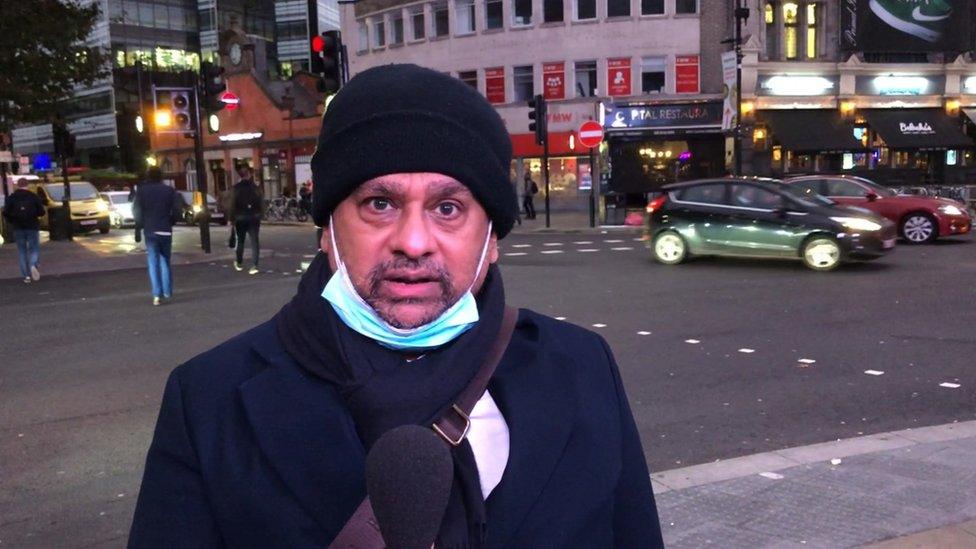
Commuter Bash Abdul said he was stressed getting to work

Lines affected
All Tube lines are suspended
On the Overground, there is no service between Liverpool Street and Cheshunt/Enfield Town and trains are not stopping at Canada Water
The DLR is fully operational, as are trams in south London
The Elizabeth line is fully running after some stations were slow to open earlier
Follow the latest advice on Twitter from BBC Radio London Travel, external

Nevertheless, it is thought a number of people who usually commute into the city have worked from home to avoid the disruption.
By 14:00 GMT, TfL ridership data showed there was 10% of normal demand on the Tube, down 86% from last week, while bus travel was 93% of normal demand, although that was up 16% from last week.
Meanwhile, on the Elizabeth line there was a 43% increase of people at Liverpool Street compared with last week, but a 30% reduction at Bond Street.
Location technology firm TomTom said there had been little change in the amount of traffic on the capital's roads during the morning compared to a week ago.
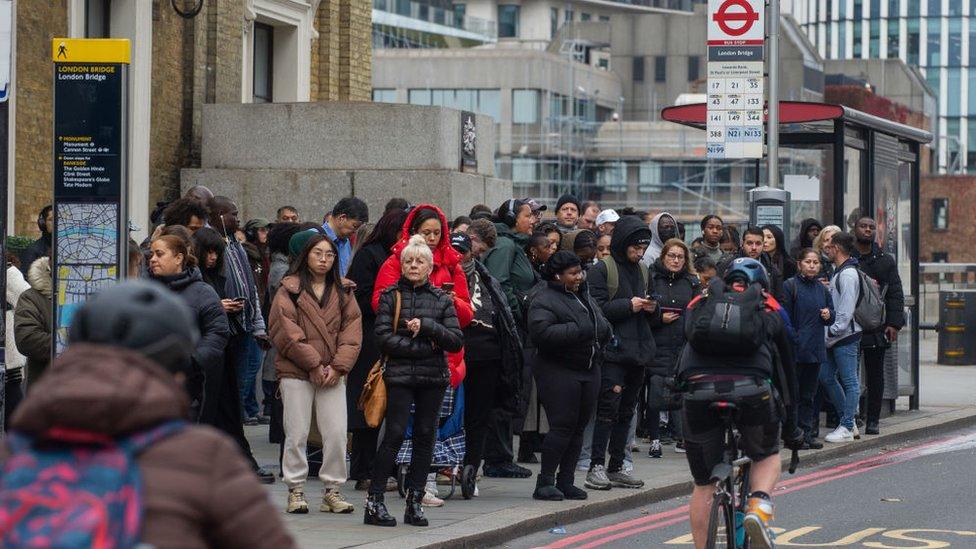
Crowds gathered on London Bridge in the hope of catching a bus

At the scene
By Tom Edwards, BBC London transport correspondent at Finsbury Park station
One women shouted at us in frustration: "I've been trying to get to work since 6am!"
At Finsbury Park the unaffected overland trains resembled sardine cans as commuters packed onto them.
Many were turning up at the closed Tube gates unaware there was a strike.
Elsewhere, others heeded the warnings and stayed at home or used the buses.
This is the sixth strike and there seems little chance of resolution over this highly charged issue of pensions.
Again it is those who have to go to into work - including key workers and businesses in central London - who seem to bear the brunt.
Allow X content?
This article contains content provided by X. We ask for your permission before anything is loaded, as they may be using cookies and other technologies. You may want to read X’s cookie policy, external and privacy policy, external before accepting. To view this content choose ‘accept and continue’.

Mayor of London Sadiq Khan, who is also chair of TfL, said the strike was "having a serious impact" on commuters.
He said he had repeatedly asked the unions to call off the strike and find a resolution with TfL, although he added he would "not support any unfair changes to pensions that attack the terms and conditions of transport workers".
The RMT union wants London Underground to suspend 600 station job cuts and an assurance it will not agree to "detrimental attacks" on pensions.
RMT general secretary Mick Lynch said: "TfL have missed a golden opportunity to make progress in these negotiations and avoid strike action.
"Our members are resolute in their determination to see a just settlement to this dispute, and they will continue their industrial campaign for as long as it takes."
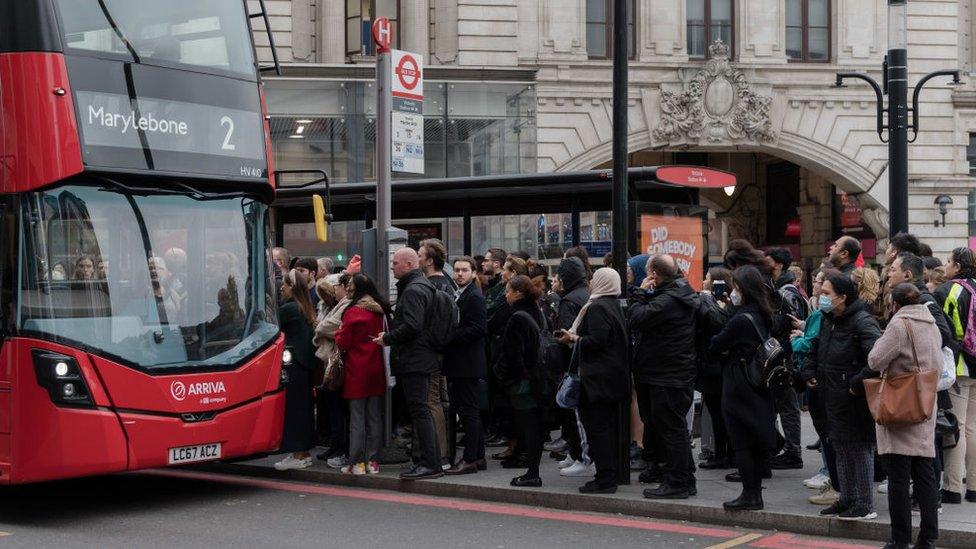
Some people were turned away from packed buses
More than 1,000 Unite members are also on strike.
Unite general secretary Sharon Graham said: "TfL is needlessly attacking our members' pay and pensions, which Unite simply can't accept.
"The workers have the full support of their union in fighting these attacks. TfL must stop behaving like a race-to-the-bottom employer and put forward an offer that is acceptable to our members."
A £3.6bn government bailout of TfL in August required the transport body to develop options around pensions.
However, Glynn Barton, TfL's chief operating officer, said no proposals to change pensions or conditions had been made and, if changes were to go ahead, there would be consultations before decisions.
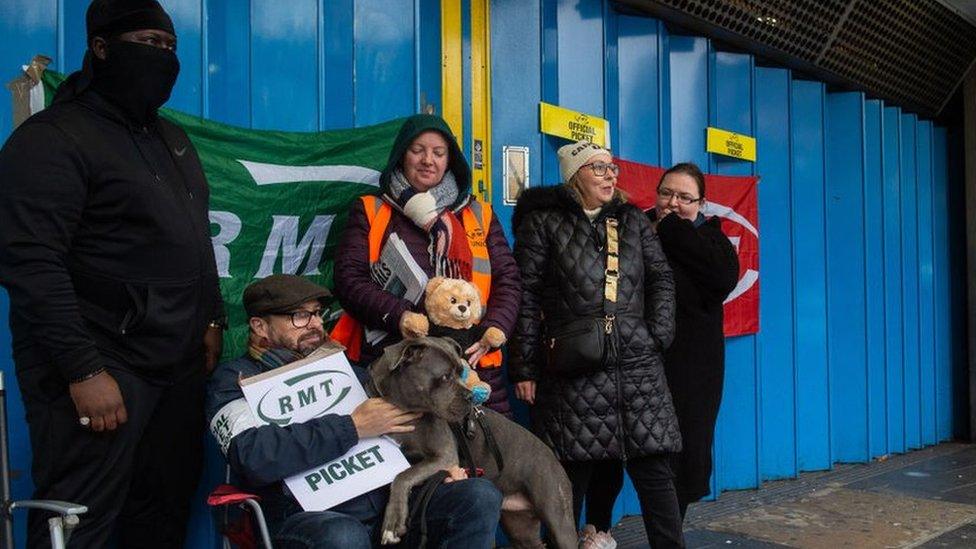
Brixton station was shut as RMT workers took to the picket line
The latest strike follows August's industrial action, when Tube journeys were down 90%, as well as walkouts in June and March.
London Underground workers received an 8.4% pay rise in April in a four-year deal, which guarantees 15,000 Tube workers an annual pay increase of 0.2% above the Retail Price Index, a measure of inflation published by the Office for National Statistics.
The strike comes as it has also been announced almost 1,000 bus drivers are set to hold their own strike over pay.

Follow BBC London on Facebook, external, Twitter , externaland Instagram, external. Send your story ideas to hellobbclondon@bbc.co.uk, external
- Published10 November 2022
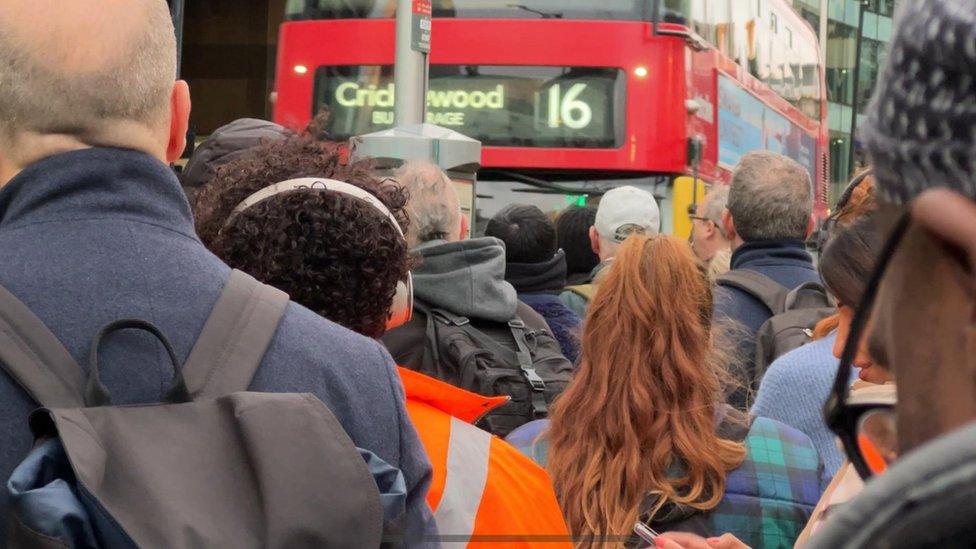
- Published30 August 2022
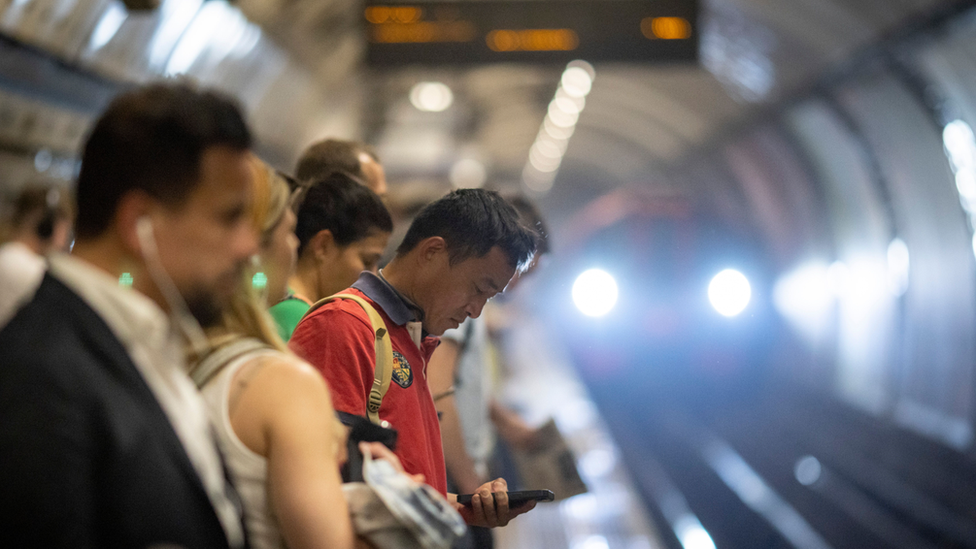
- Published22 August 2022
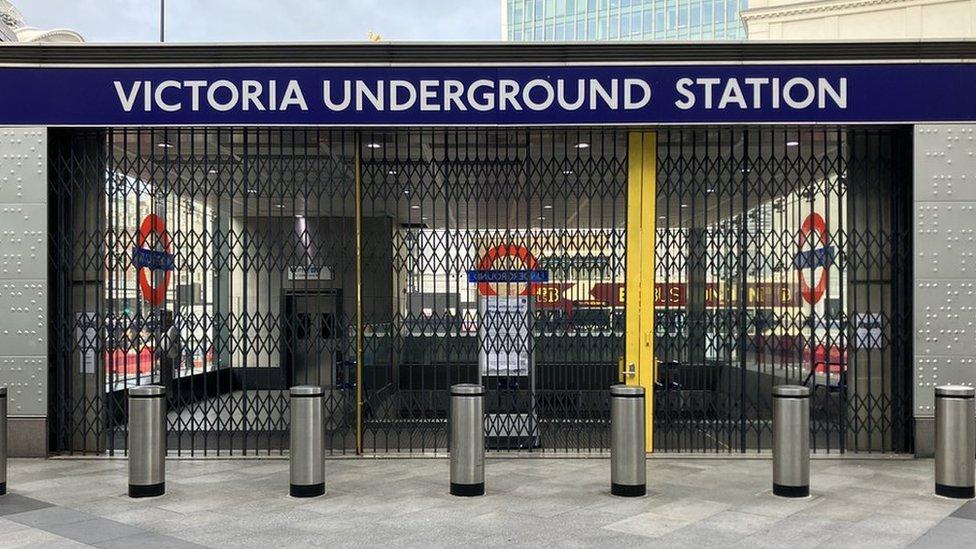
- Published9 November 2022
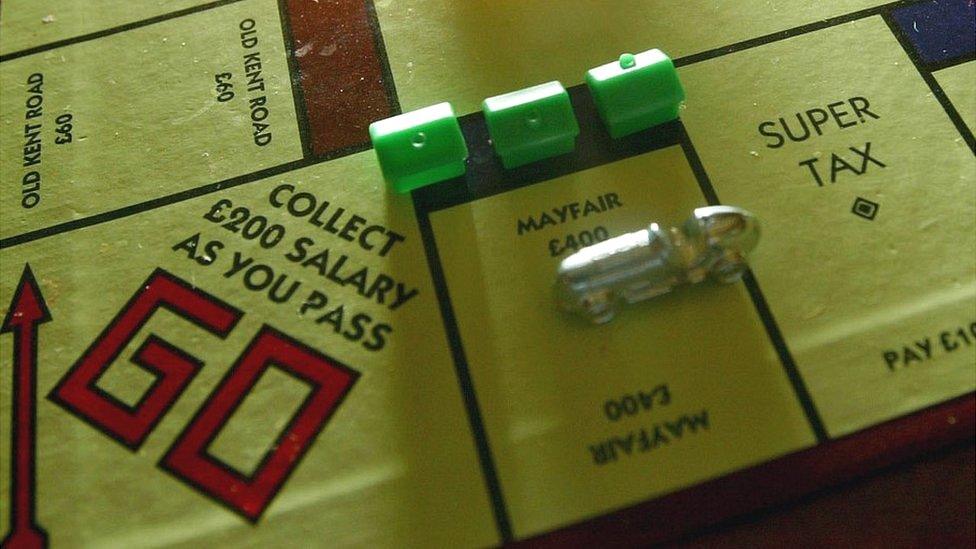
- Published17 August 2022
